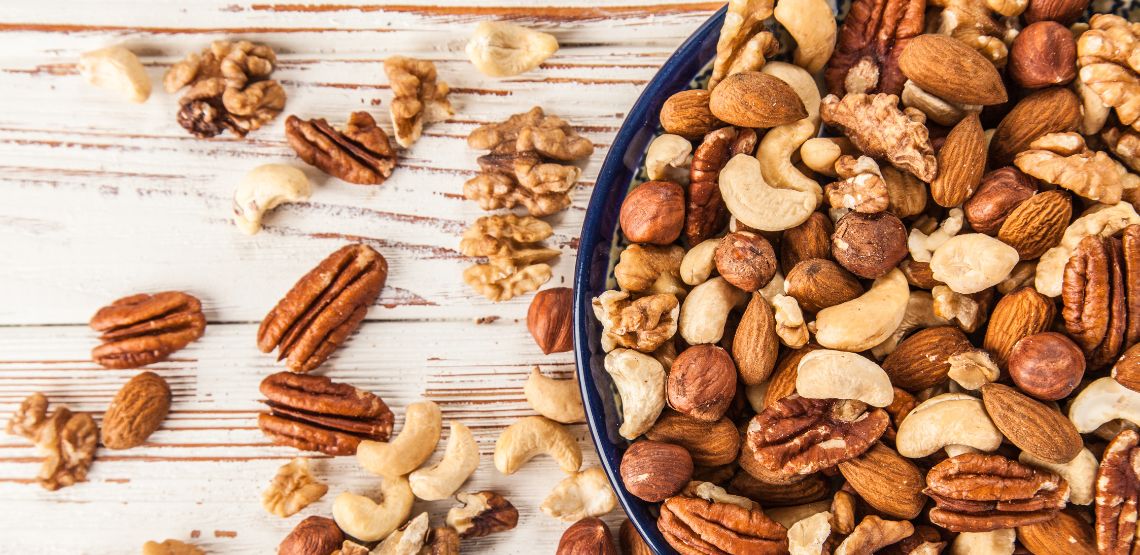What to Eat to Support Hair Growth
Alopecia, a condition that leads to hair loss, can be challenging both physically and emotionally. While treatments vary, nutrition plays a key role in supporting hair health. Eating the right foods can provide your body with the nutrients it needs to strengthen hair follicles, reduce inflammation and promote regrowth. Below are ten powerful foods for alopecia and how each one can help you naturally support hair growth.
1. Eggs
Eggs are one of the best natural sources of biotin, a B-vitamin essential for producing keratin (the protein that makes up your hair). Biotin deficiency is commonly linked to hair thinning and loss. Eggs are also rich in protein, which helps repair and rebuild tissues, including the cells in your scalp and hair follicles. A diet high in protein and biotin can support stronger, healthier hair growth.
2. Spinach
Spinach is packed with iron, a mineral that helps red blood cells carry oxygen to your hair follicles. When your body lacks iron, hair follicles can be starved of oxygen, leading to shedding or thinning. Spinach also contains vitamins A and C, which aid in the production of sebum (a natural oil that moisturizes the scalp and keeps hair healthy). These nutrients make spinach a top choice among foods for alopecia.
3. Salmon
Salmon is rich in omega-3 fatty acids, which help reduce inflammation and nourish hair follicles. This is especially important for autoimmune forms of alopecia, like alopecia areata, where inflammation affects hair growth. The healthy fats in salmon also support scalp health and improve hair density. Additionally, salmon provides high-quality protein and vitamin D, both of which contribute to hair strength and resilience.
4. Sweet Potatoes
Sweet potatoes are a fantastic source of beta-carotene, a compound your body converts into vitamin A. This vitamin encourages the production of sebum, which keeps the scalp hydrated and healthy. A dry, irritated scalp can negatively affect hair growth. Vitamin A also supports cell turnover, helping new hair cells grow. Adding sweet potatoes to your meals is a delicious way to boost scalp and follicle health.
5. Avocados
Avocados are loaded with healthy monounsaturated fats, vitamin E and antioxidants, all of which benefit the scalp and promote stronger hair growth. Vitamin E helps repair damaged hair follicles and may reduce oxidative stress in the scalp, which can contribute to alopecia. Avocados also contain biotin, making them a double-win for anyone looking to improve their hair health naturally.
6. Nuts
Nuts like almonds, walnuts and Brazil nuts are excellent for overall hair health. They are high in zinc, selenium and vitamin E—nutrients that support the immune system and reduce inflammation. Zinc is especially important for preventing hair loss, as it helps keep the oil glands around hair follicles working properly. Just a small handful of nuts a day can deliver powerful hair-boosting benefits.
7. Seeds
Seeds such as flaxseeds, chia seeds and sunflower seeds are packed with essential fatty acids, zinc and antioxidants. Flaxseeds and chia seeds are particularly high in plant-based omega-3s, which help calm inflammation and support the structure of hair cells. These tiny foods are easy to sprinkle onto smoothies, oatmeal or yogurt and are among the most nutrient-dense foods for alopecia.
8. Berries
Berries like strawberries, blueberries and raspberries are rich in vitamin C and antioxidants. Vitamin C helps your body produce collagen, which strengthens hair and promotes elasticity. It also helps your body absorb iron from plant-based foods, which is important for preventing hair loss. The antioxidants in berries help protect hair follicles from damage caused by free radicals.
9. Lentils
Lentils are a powerful plant-based source of protein, iron, zinc and biotin. All of these nutrients support hair growth and follicle strength. Lentils also provide folate, which helps in red blood cell production. This ensures that hair follicles receive plenty of oxygen and nutrients for healthy growth. Lentils are easy to add to soups, stews and salads for a nutritious boost.
10. Oysters
Oysters are one of the richest sources of zinc, a mineral crucial for hair tissue growth and repair. Zinc deficiency is a known contributor to hair loss, including forms of alopecia. Oysters also provide protein and iron, making them a powerful addition to a diet focused on hair recovery and regrowth.
Final Thoughts
While there is no magic cure for alopecia, eating a nutrient-rich diet can make a big difference in supporting hair health. The best foods for alopecia are those that provide key nutrients like biotin, iron, zinc, omega-3 fatty acids and antioxidants. By incorporating these ten foods into your meals regularly, you can help strengthen your hair from the inside out and give your body the support it needs to promote healthy regrowth.
